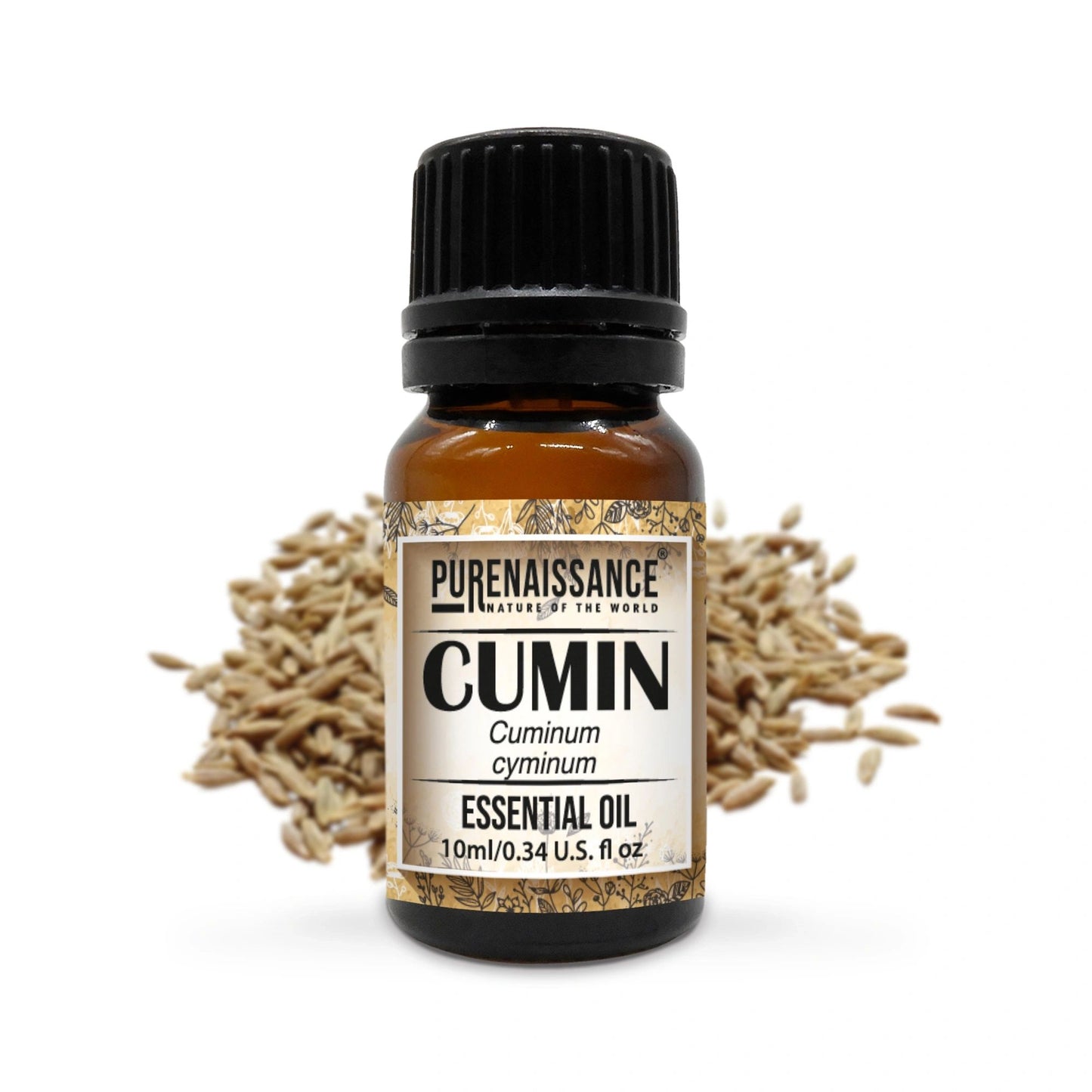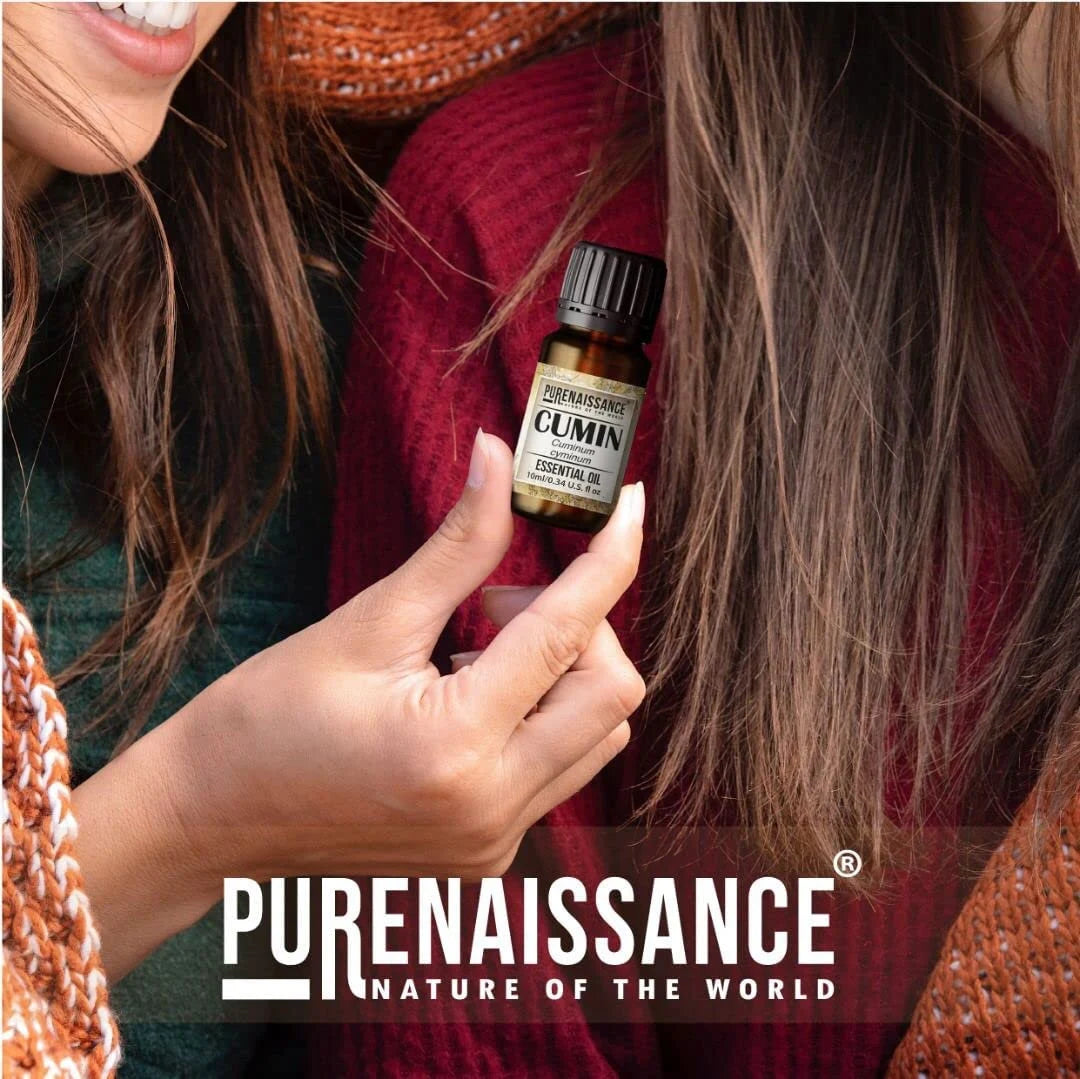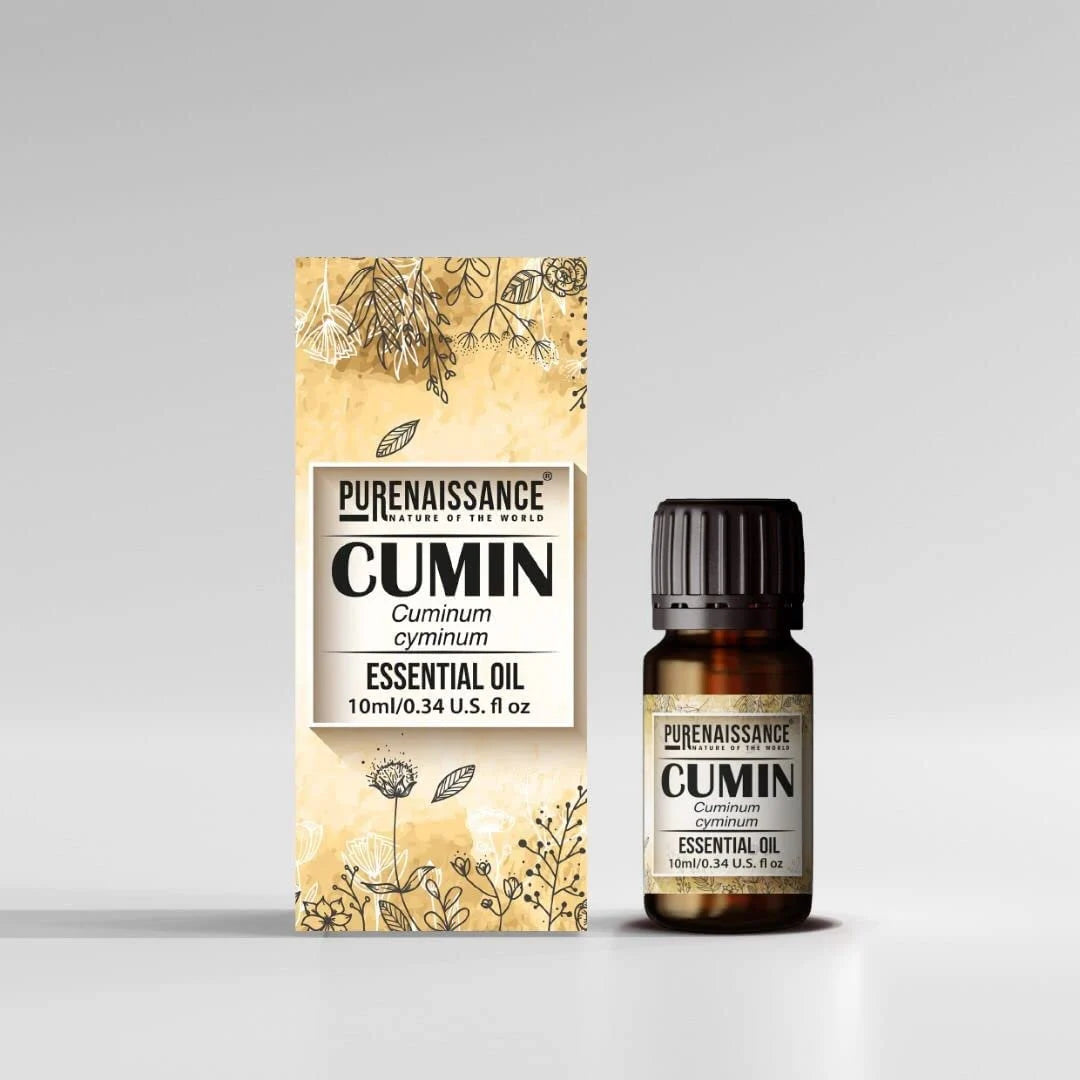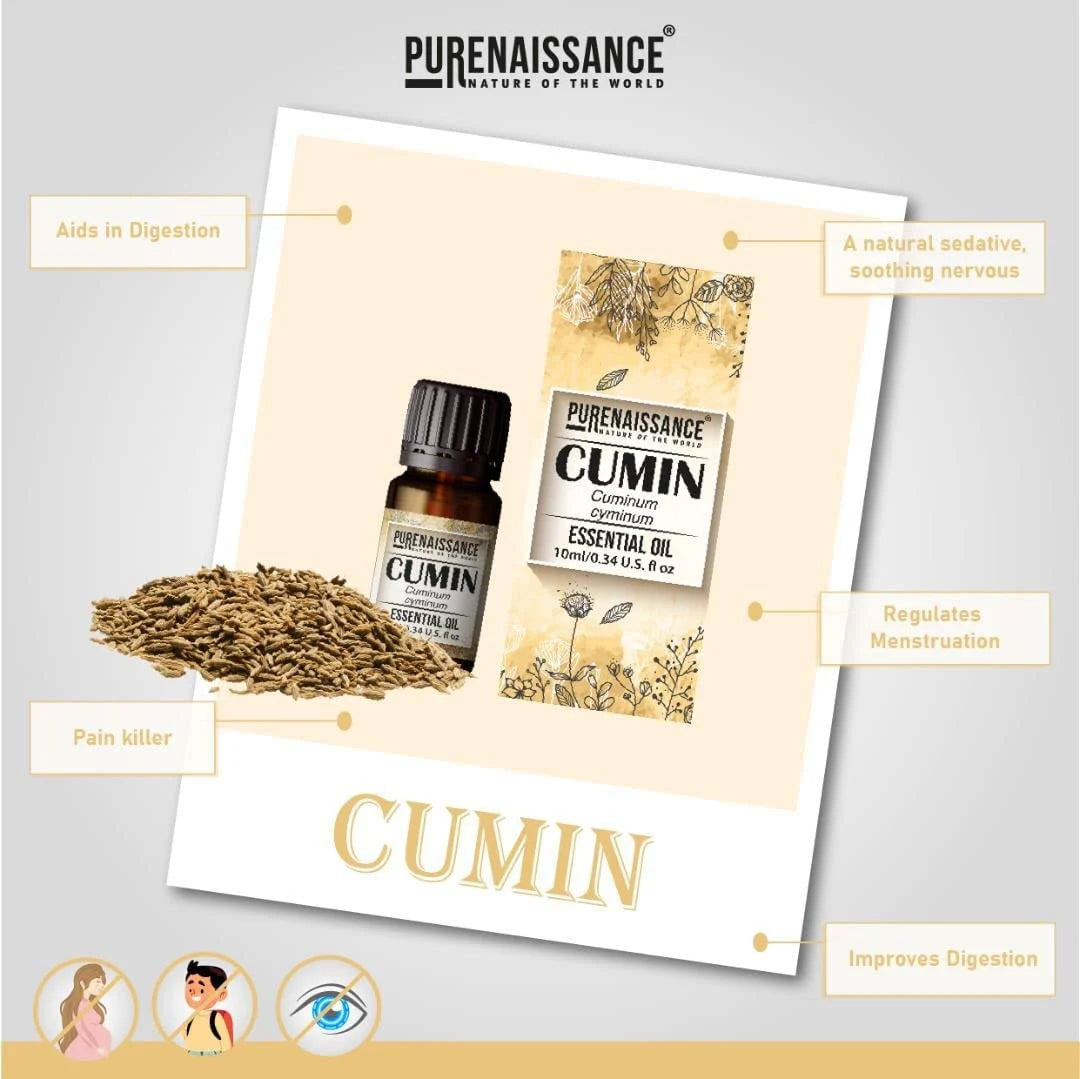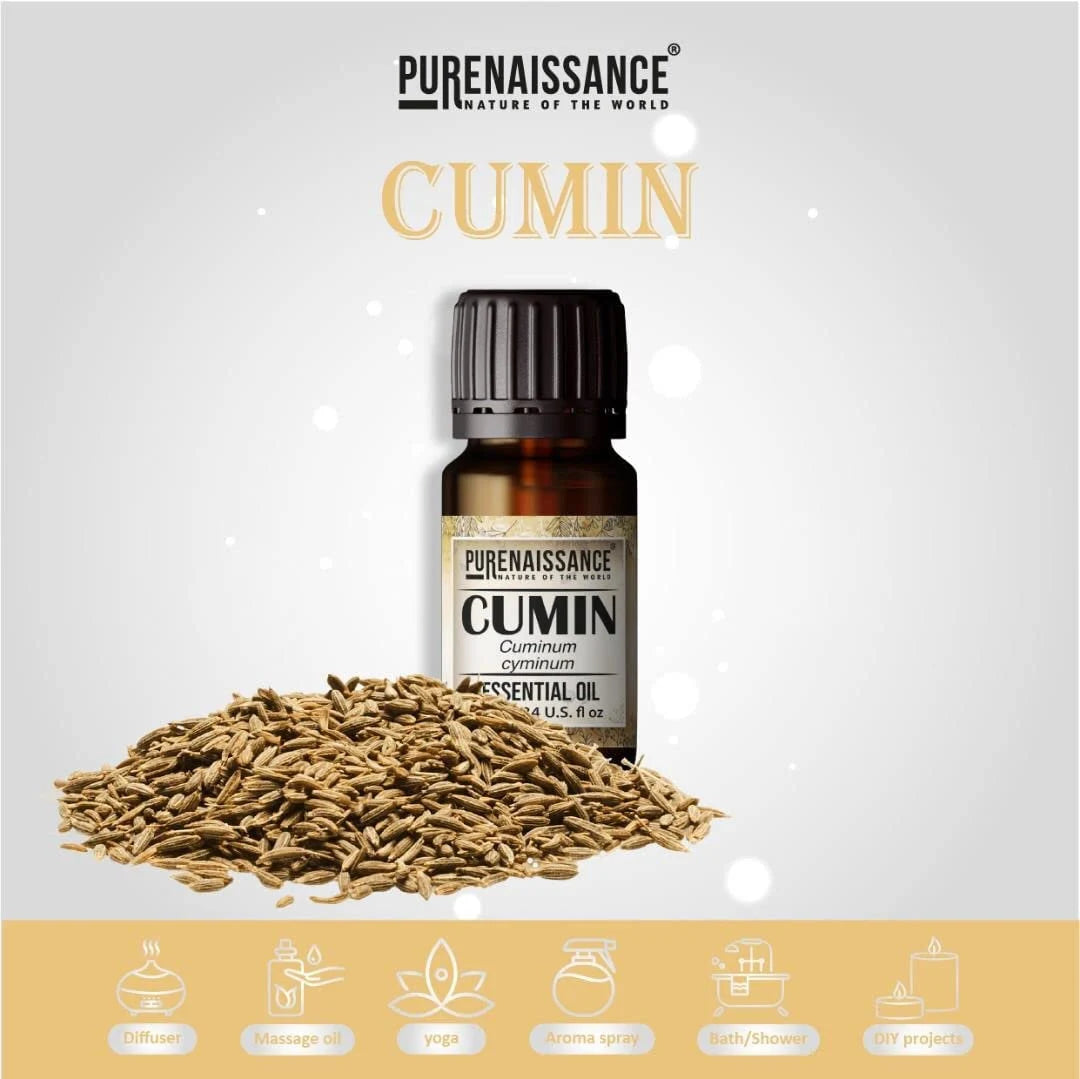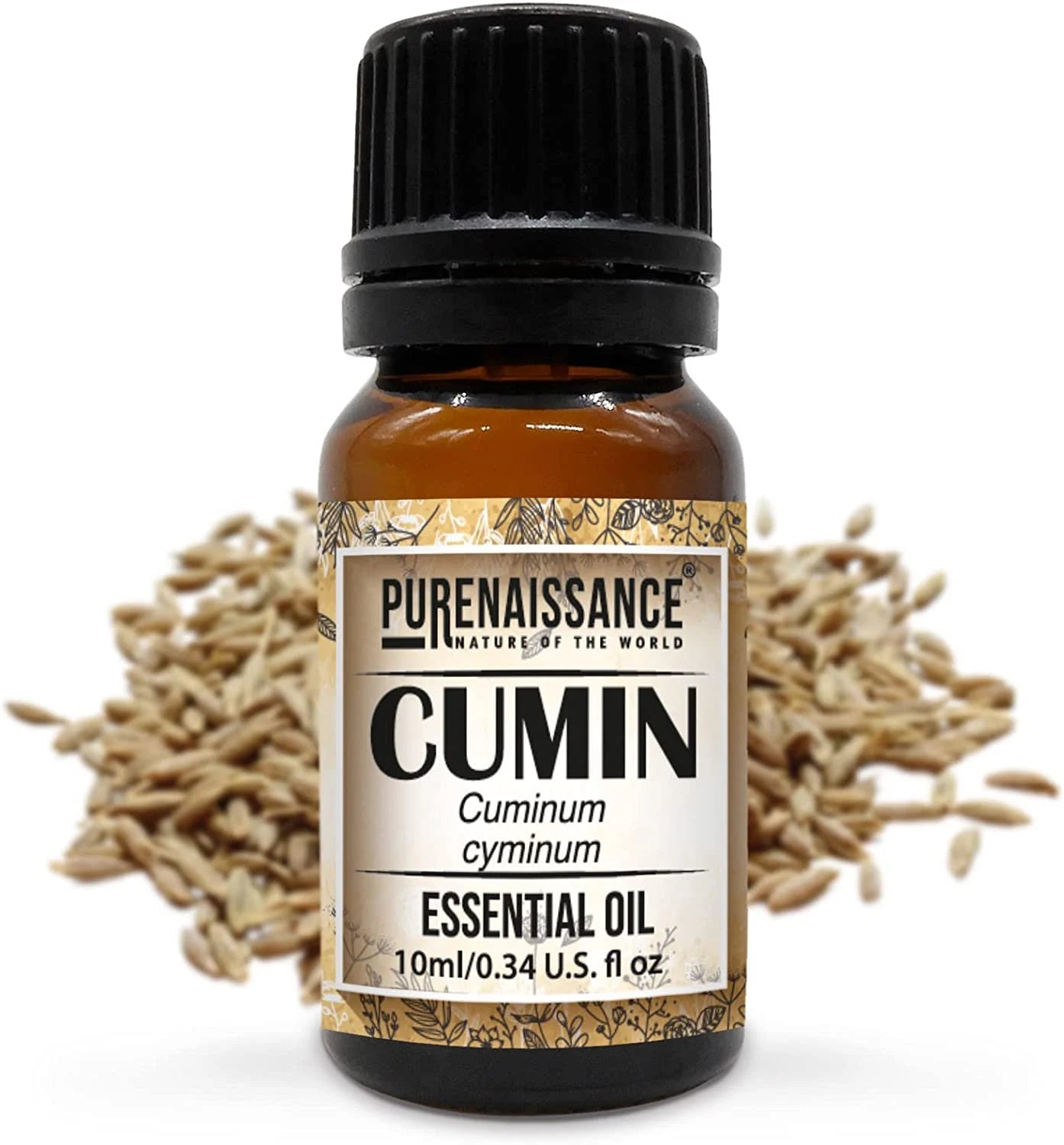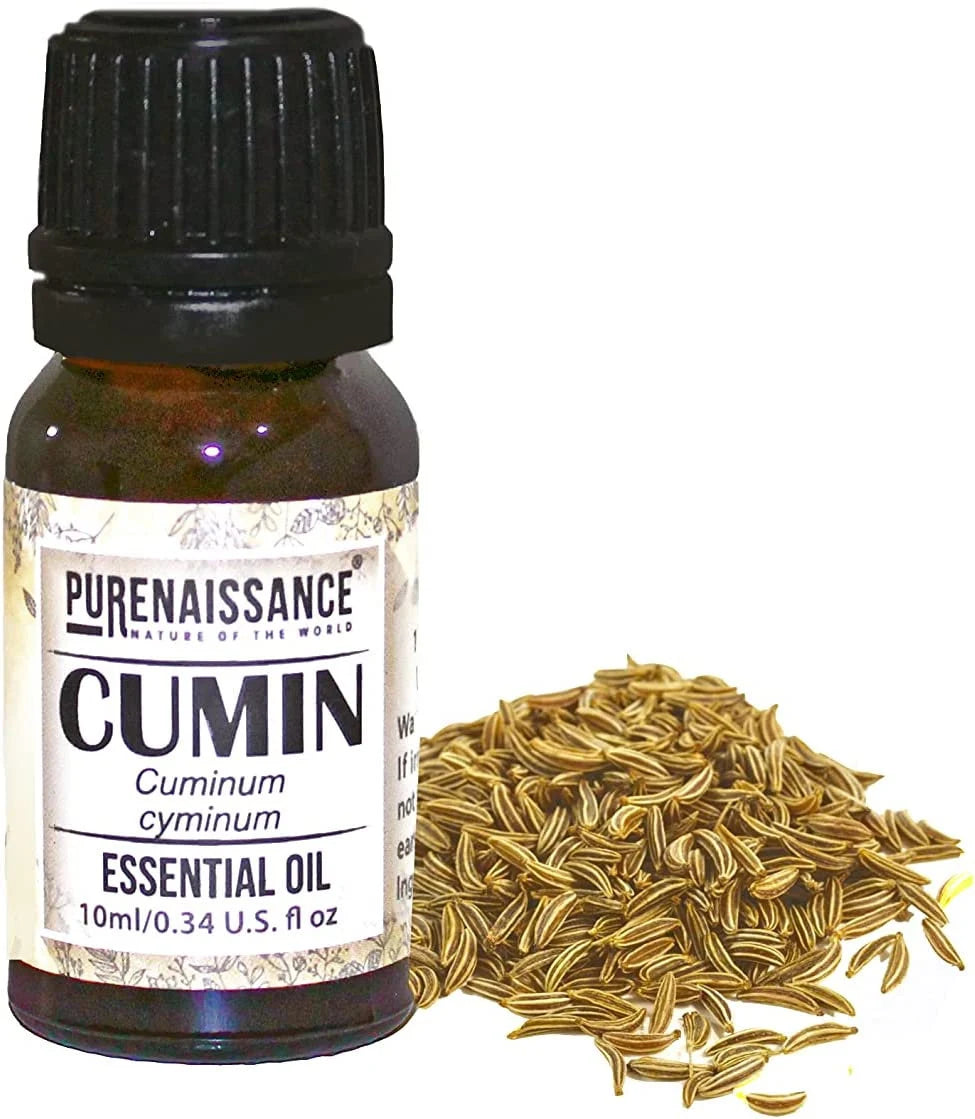Purenaissance
Pure Cumin Essential Oil Purenaissance Therapeutic Grade for, Best for Aromatherapy and Diffuser
Pure Cumin Essential Oil Purenaissance Therapeutic Grade for, Best for Aromatherapy and Diffuser
Couldn't load pickup availability
What Is Cumin Essential Oil?
Used in Egypt over 5,000 years ago, cumin is native to the Mediterranean basin in the Nile Valley. Renowned for its medicinal virtues, it was also used in pharaonic tombs for members of royal families. In ancient Rome, cumin was considered highly valuable and became one of the most coveted spices by explorers traveling to India and Africa.
Cumin essential oil, extracted from the seeds of Cuminum cyminum, is a powerful and versatile oil used for health and culinary purposes. Historically, it was employed as a high-dose narcotic in Indian harems and was used by village doctors and shamans in the preparation of medicinal drugs.
Just as ground cumin is a staple in kitchens worldwide, Cumin essential oil contributes significantly to cooking, adding zest to savory dishes and transforming bland meals into spicy, flavorful cuisine. Beyond culinary uses, Cumin essential oil can also be diffused aromatically, releasing a warm, spicy, and nutty aroma. Taken internally, it aids digestion and provides numerous health benefits. When applied topically, the warming effect of cuminaldehyde in cumin can be felt on the skin.
Technical Data: Cumin Essential Oil
Common Names: Cumin, meadow cumin, officinal cumin
Latin Name: Cuminum cyminum
Appearance: Mobile liquid
Color: Pale yellow
Odor: Powerful, aromatic, and spicy
Botanical Family: Apiaceae
Part Used: Seeds
Processing Method: Steam distillation
Type: 100% pure
Origin: Turkey
Chemical Composition:
- Monoterpenes: 30–60% (Alpha terpinene, Beta pinene, p-Cymene)
- Aromatic Aldehydes: 30–40% (Cuminaldehyde)
- Other Compounds: Monoterpenols, Sesquiterpenes
Physical Characteristics:
- Density at 20°C: 0.895–0.916
- Refractive Index at 20°C: 1.462–1.470
- Rotatory Power at 20°C: +7° to +13°
- Flash Point: +53°C
Storage Conditions:
Store in the original, tightly closed container in a cool, dry, and ventilated area, away from heat and light. To maximize shelf life, transfer oils from metal containers to dark glass containers. Keep air exposure to a minimum.
Fire Protection:
Keep away from ignition sources and open flames.
Properties of Cumin Essential Oil
For Health:
-
Carminative and Digestive Stimulant:
Monoterpenes improve stomach movement and promote the expulsion of intestinal gas while reducing its production. -
Antispasmodic:
Prevents muscle contractions by inhibiting calcium entry into cells, similar to angelica and anise essential oils. -
Anti-Infectious:
Monoterpenes break down the cytoplasmic membranes of bacteria, viruses, fungi, worms, and parasites. -
Immunostimulant:
Antioxidant components reduce oxidative stress and boost natural defenses. -
Other Properties:
- Pain relief
- Stimulates blood flow (emmenagogue)
For Well-Being:
- Natural sedative
- Soothes nerves
Indications of Cumin Essential Oil
For Health:
- Viral Infections: Influenza, shingles, herpes, hepatitis, etc.
-
Digestive Issues:
- Bloating, aerophagia
- Colitis, colic
- Constipation
- Slow digestion
- Motion sickness
- Loss of appetite (both adults and children)
- Intestinal spasms
-
Other Indications:
- Hyperthyroidism
- Uro-genital disorders
- Immune deficiencies
For Well-Being:
- Insomnia
- Anxiety
- Stress
- Fatigue
- Disturbed sleep
Tips for Using Cumin Essential Oil
Topical Application:
- Dilute with a carrier oil (20–30%; 1 drop of Cumin oil to 4 drops of vegetable oil).
- Massage specific areas depending on the condition:
- Digestive issues: Circular motions on the abdomen.
- Muscle tension: Apply to the solar plexus, back, or wrists.
- Overwork: Massage the plexus.
Inhalation:
- Place a few drops on a tissue and inhale deeply for 2–3 minutes to alleviate anxiety, trigger appetite, or combat motion sickness.
Diffusion:
Cumin essential oil is less suited for diffusion but can be mixed with oils like fennel, anise, and coriander for added benefits. Use diffusion methods like nebulization, ultrasonic misting, or gentle heat.
Synergies with Cumin Essential Oil:
- Combine with fennel, anise, and coriander for digestion support.
- Blend with cilantro and coriander for diffusion.
Cautions:
- Keep out of reach of children.
- Consult a physician if pregnant, nursing, or under medical care.
- Avoid sunlight or UV rays for 12 hours after topical application.
- Always seek advice from an aromatherapy professional for safe use.
First Aid Measures:
- Inhalation: Remove the person from exposure; seek medical help if discomfort persists.
- Ingestion: Rinse mouth and drink water. Avoid inducing vomiting.
- Skin Contact: Remove contaminated clothing and wash thoroughly with water.
- Eye Contact: Flush eyes with water for 15 minutes; seek medical attention immediately.
Share
